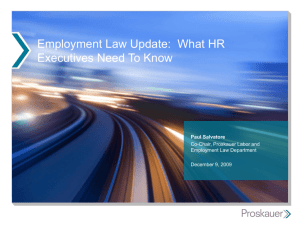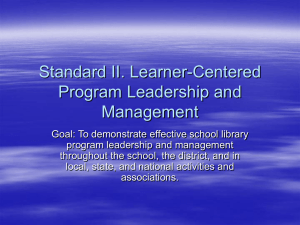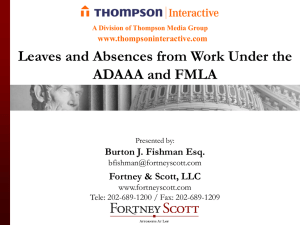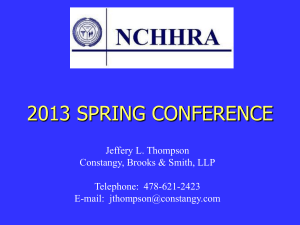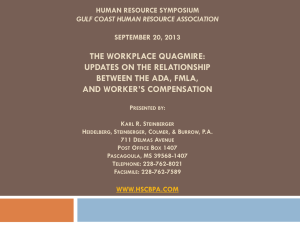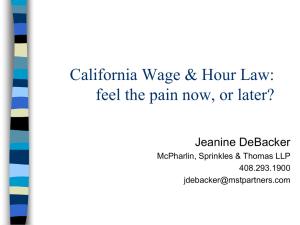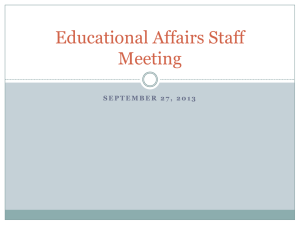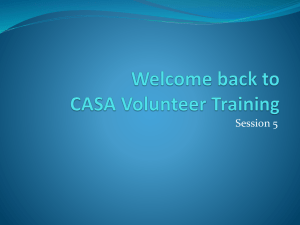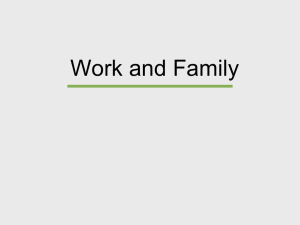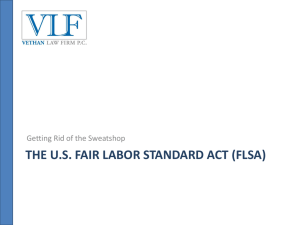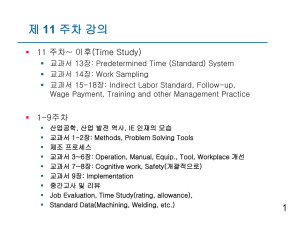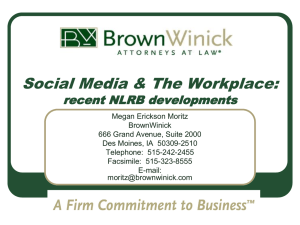Workflex
advertisement
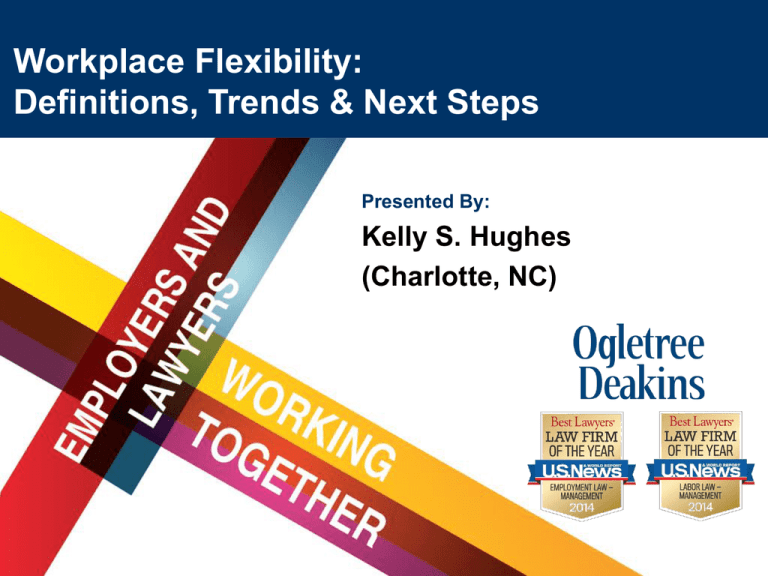
Workplace Flexibility: Title Goes Here Definitions, Trends & Next Steps Presented By: Kelly S. Hughes (Charlotte, NC) AGENDA Introduction to Workflex Terms, Tools and Trends Discussion of Most Commonly Implicated Federal Employment Laws Tips for Getting Started STRATEGIC WORKFLEX Workflex is not A benefit A form of compensation or punishment A right A collection of programs or policies Limited to remote work and flex hours WHAT IS WORKFLEX? Workflex is a process for solving problems and increasing effectiveness and efficiency in and out of work Why Workflex? Bottom Line Results American Express found that remote workers were 43% more productive than their officebased colleagues PricewaterhouseCoopers’ flexibility policies have helped cut annual turnover from 15% to 24% saving an estimated $45 million a year Traffic congestion cost U.S. commuters $121 billion in wasted time and fuel Workflex is One Part of an Effective Workplace Workflex Tools and Trends • Choices in Managing Time • Flex Time and Flex Place • Reduced Time • Time Off • Flex Careers • Dealing with Overwork • Culture of Flexibility Intersection of Workflex Tools and Employment Laws Teleworking Primary laws implicated: - - Title VII ADA (and ADAAA) OSHA Workers’ Compensation Privacy Laws /Data Protection NLRA FLSA (and state wage/hour laws) FMLA Shift Swapping Primary laws implicated: - Title VII ADA (and ADAAA) NLRA FLSA (and state wage/hour laws) Reduced Schedules/Job Sharing Primary laws implicated: - Title VII ADA (and ADAAA) NLRA FLSA (and state wage/hour laws) FMLA ERISA Flexible Schedules Primary laws implicated: - Title VII ADA (and ADAAA) NLRA FLSA (and state wage/hour laws) FMLA New San Francisco ordinance Time Off/Sabbaticals Primary laws implicated: - - Title VII ADA (and ADAAA) NLRA FLSA (and state wage/hour laws) FMLA ERISA COBRA EAP/Employee Wellness Primary laws implicated: - GINA ADA (and ADAAA ) HIPAA ERISA COBRA Creating an Effective and Flexible Workplace GETTING STARTED Drawing Conclusions: Where Do You Go Next? • BIG DECISIONS Do you need to offer more than you have currently? Are managers getting in the way and, if so, why? Are you offering the right options, but are people not using them? Implementation: Moving to Action • Use pilot programs to learn how to implement flexibility, not as a way to decide whether to offer flexibility • Make sure you start implementation with ongoing mechanisms to collect feedback on what works and what needs to be improved • Create principles and guidelines to guide the evolution of your workflex efforts • Write down your organization’s policies • Equip your managers and supervisors with information, tools and resources to be effective workflex stewards Maintaining the Momentum • Continue to educate all of your flexibility champions in change management • Create opportunities for recognition for managers who promote flexibility; and construct small wins on an ongoing basis • Continue to communicate, communicate, communicate • Build workflex into your accountability system and other key management systems • Look for improvements you can make • Measure what matters Assessing Your Organization’s Workflex When Work Works offers free workflex assessment surveys of employers and employees as part of the Sloan award application process (Jan-May) All applicants get free, confidential reports comparing their responses to the biennial National Study of Employers Winners are offered support gathering recognition for their workflex efforts by When Work Works and local community partners and SHRM affiliates Additional Resources Workflex: Employee toolkit is the employee focused companion piece to Workflex: The Essential Guide to Effective and Flexible Workplaces. It’s purpose is to help employees partner with their employers to develop workflex plans that benefit both employers and employees. Online download at: http://www.whenworkworks.org/ be-effective/guidestools/workflex-employee-toolkit Additional Resources Workflex includes research, legal and experience-based perspectives and indepth case studies of workplace flexibility as well the tools and techniques needed to translate those perspectives into action. Additional Resources For more information about workflex, When Work Works and its sponsors SHRM and Families and Work Institute: • check out their website at WhenWorkWorks.org or follow them on Twitter @WhenWorkWorks OR • Call your friendly employment law attorney Creating an Effective and Flexible Work Environment Questions? Kelly S. Hughes 704-405-3132 (direct) Kelly.Hughes@ogletreedeakins.com
